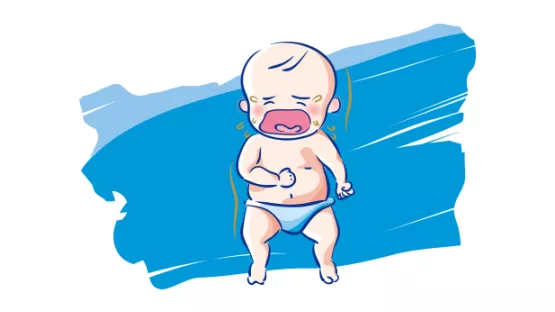
When your baby’s crying never stops
Symptoms of colic
All babies cry, but if your child seems to cry inconsolably or excessively when he is otherwise healthy, fed, changed and well-rested, he may be experiencing infant colic. A quick way to determine if your child could have colic is by following the “PURPLE” rule:
Be aware of colic using the "PURPLE" rule

Peak of crying

Unexpected
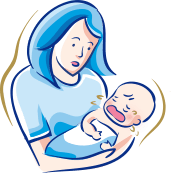
Resists soothing

Pain-like face

Long-lasting

Evening
Some children are more prone to colic than others, and this can be very frustrating and distressing for new parents still adjusting to parenthood. One key symptom of colic is if your child cries excessively and seemingly without reason. Excessive crying is defined if your child cries for at least three hours a day, for more than three days a week, with each occurrence lasting three or more weeks each time. Other associated symptoms include:
Associated symptoms

Flushing of cheeks

Bending of legs into belly
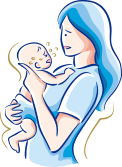
Crying inconsolably

Stops crying after farting or bowel movement
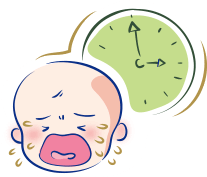
Persistent
At least 3 hours a day, more than 3 days a week, lasts 3 weeks each time
It is important to properly diagnose your child, as crying can also be a symptom of other conditions. Other potential conditions include:
Distinguishing colic from other conditions

Gastroesophageal reflux

Lactose intolerance
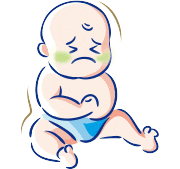
Abdominal pain due to surgical pathology

Crying because of mother’s history with alcohol or drug use

Fussiness due to infection
Why colic develops in infants
Colic has been around for years, but research is still unable to determine its key cause. Some doctors may attribute it to a natural stage of development as babies get used to life outside the womb. Other possible causes for colic include:
Causes of colic

Poor tolerance or total intolerance of lactose
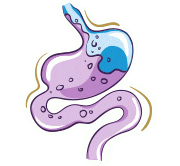
Flatulence

Your child’s digestive system is still immature, leading to stomach upsets
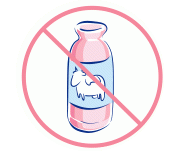
Allergy to protein in cow’s milk

Inappropriate diet and feeding habits

Parents’ anxiety and soothing worries infant
Remedies colic
Colic is not harmful to the child, but can take a real toll on parents and caregivers. Generally, colic eventually subsides after a number of months, so one can only really wait it out. To cope, you can also learn about varying methods to calm your child, including:
Remedies of colic for children

Providing comfort via breastfeeding or a pacifier
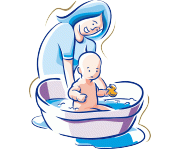
Giving a warm bath

Cuddling your child

Singing a lullaby

Turning on some soothing music

Using anti-flatulence medication as instructed by your doctor
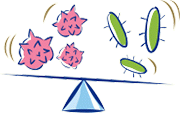
Providing probiotics contained in medicines, and food under the guidance of your doctor
For parents and caregivers, the aim should be to reduce the stress and frustration that comes with having a child that experiences infant colic. Some of these measures can also be taken:
Remedies of colic for parents and caregivers
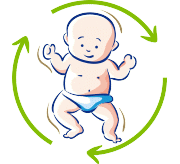
Learn how to provide care, ensuring that the baby is not hungry or tired

Practice proper breastfeeding

Understand and learn how to cope with baby’s crying
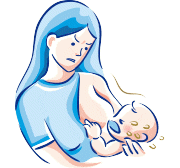
Don’t get frustrated when the baby is crying to avoid doing harm to him

Spend time in rest and relaxation
Advanced reading: when to seek help for colic
If crying persists in your baby, you may want to seek medical help. A good gauge that the crying is not simply a symptom of colic is if your child is:
When to visit your doctor
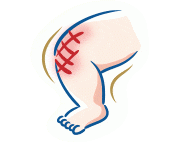
Crying after a fall or trauma

Crying when ill

Crying accompanied by cyanosis (a bluish tinge to the skin and lips)

Crying accompanied by changes in behaviour, eating or sleeping habits
Before visiting the doctor, parents or caregivers should also monitor the symptoms and frequencies in your baby’s cries, including:
What to do when making doctor visits

Making notes about baby’s diet, food, feeding schedule and weight changes

Sharing solutions and interventions attempted when baby cries

Locations, progress, time and frequency of crying

Signs and changes before, during and after crying
You may also ask the doctor these questions to get more information, including:
- Causes of crying
- Impacts on the child’s development
- What to do when it occurs
- Effective treatments

When you have arrived at the doctor’s office, don’t be alarmed when the doctor performs these routine examinations to find out more about your child’s condition:
Examples of routine examinations

Learning and evaluating care from the family

Reviewing the child’s diet history and habits

Reviewing the mother’s pregnancy and medical history

Understanding the family’s medical history

Performing a clinical examination
Related Articles
